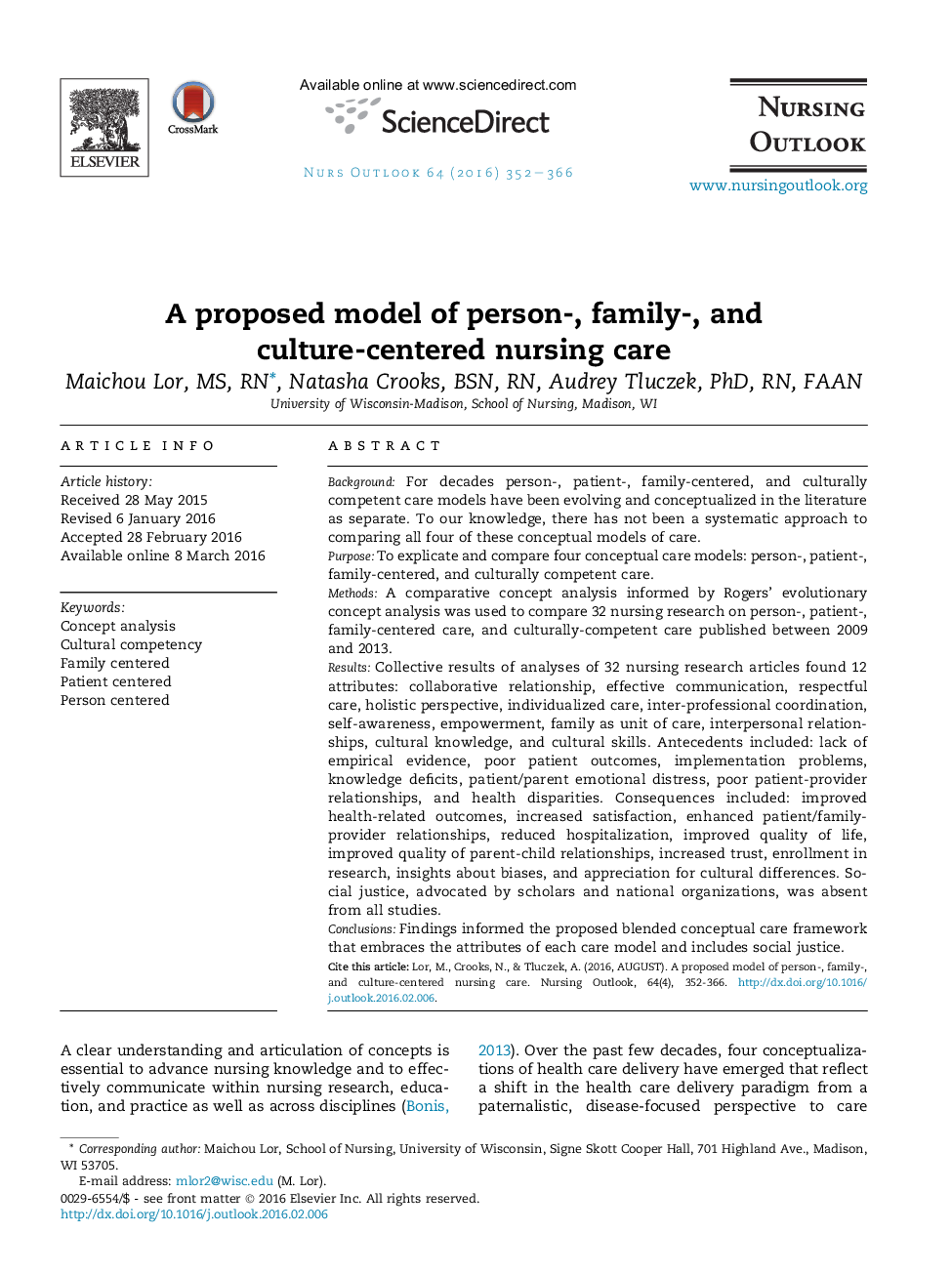| Article ID | Journal | Published Year | Pages | File Type |
|---|---|---|---|---|
| 2678075 | Nursing Outlook | 2016 | 15 Pages |
BackgroundFor decades person-, patient-, family-centered, and culturally competent care models have been evolving and conceptualized in the literature as separate. To our knowledge, there has not been a systematic approach to comparing all four of these conceptual models of care.PurposeTo explicate and compare four conceptual care models: person-, patient-, family-centered, and culturally competent care.MethodsA comparative concept analysis informed by Rogers’ evolutionary concept analysis was used to compare 32 nursing research on person-, patient-, family-centered care, and culturally-competent care published between 2009 and 2013.ResultsCollective results of analyses of 32 nursing research articles found 12 attributes: collaborative relationship, effective communication, respectful care, holistic perspective, individualized care, inter-professional coordination, self-awareness, empowerment, family as unit of care, interpersonal relationships, cultural knowledge, and cultural skills. Antecedents included: lack of empirical evidence, poor patient outcomes, implementation problems, knowledge deficits, patient/parent emotional distress, poor patient-provider relationships, and health disparities. Consequences included: improved health-related outcomes, increased satisfaction, enhanced patient/family-provider relationships, reduced hospitalization, improved quality of life, improved quality of parent-child relationships, increased trust, enrollment in research, insights about biases, and appreciation for cultural differences. Social justice, advocated by scholars and national organizations, was absent from all studies.ConclusionsFindings informed the proposed blended conceptual care framework that embraces the attributes of each care model and includes social justice.
